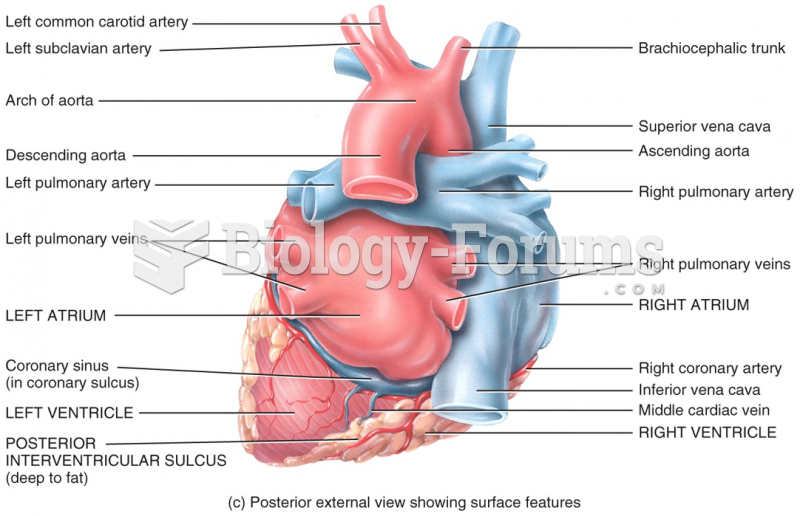|
|
|
Vaccines cause herd immunity. If the majority of people in a community have been vaccinated against a disease, an unvaccinated person is less likely to get the disease since others are less likely to become sick from it and spread the disease.
The horizontal fraction bar was introduced by the Arabs.
More than 34,000 trademarked medication names and more than 10,000 generic medication names are in use in the United States.
Before a vaccine is licensed in the USA, the Food and Drug Administration (FDA) reviews it for safety and effectiveness. The CDC then reviews all studies again, as well as the American Academy of Pediatrics and the American Academy of Family Physicians. Every lot of vaccine is tested before administration to the public, and the FDA regularly inspects vaccine manufacturers' facilities.
Urine turns bright yellow if larger than normal amounts of certain substances are consumed; one of these substances is asparagus.







